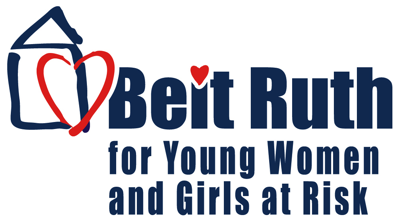Looking Back: A Year of Fighting the Coronavirus with At-Risk Girls
February 2021, by Mor Ben Simchon Lipin, Beit Ruth Village Manager
A year ago, when news of an unknown illness began showing up in the Israeli media, my mother started talking to me about this mysterious disease. I told her not to worry. I even said, ‘Enough! You’re just focused on bad news.’”
A few weeks later, on February 21, 2020, my niece sent me news about the first documented case in Israel of what has become known as COVID-19 or the Coronavirus.
At that time, the Beit Ruth Village, a long-term therapeutic residence and school in Afula, Israel, for girls, ages 13-18, who have been removed from their homes due to physical, emotional, and sexual abuse, had been planning a trip to Mount Hermon so the girls could see and experience snow, uncommon in much of the country. It was right before the Jewish holiday of Purim and after much discussion, the trip moved forward. Four days later, Israel declared its first of three lockdowns.
All of a sudden, everyone was in a panic because no one knew what we were dealing with. The news was saying it was a flu and most people didn’t even have symptoms. I remember explaining to my staff that we were young so we didn’t need to worry. Of course, I, and people around the world, soon discovered there was, in fact, a great need to worry. With that, came high anxiety at the Village for our girls and staff.
By now, it was April and Passover 2020 was approaching. Plans for girls to return home for the holiday had to be cancelled, creating even more uncertainty. Thankfully, because of the relationship the Village has with local law enforcement, a clothing shop was allowed to open just for us so the girls could purchase special Passover clothing, an annual tradition. Our girls were probably the only ones in Israel who had new clothes for the holiday! Everything we did – and do – was to try and keep a sense of routine, structure, and normalcy.
As an Israeli-government designated essential organization, Beit Ruth operates during times of natural disasters, wars, and, now, a global pandemic. One of my roles as the manager was to be in constant touch with Israel’s Ministry of Welfare for guidance. At the time, 500 cases of the Coronavirus were diagnosed in the country; today, there have been more than 700,000.
“Who takes care of me and my staff?” I asked the Welfare Office, explaining that we are parents with children who need us, and we also have staff who are in high-risk categories. While they tried to be helpful, they couldn’t give us any real answers. On our own, we moved into action, working in two primary directions: first, we ensured that the girls in the Village, who were feeling so angry about being in lockdown, had everything they needed, and secondly, that the staff helped each other as we worked to manage our own anxiety.
To address the first issue, we did many things to bring some joy, like making sure that Shabbat in the Village was extra special by bringing in special cakes for the traditional weekly meal. As the year wore on, the Village made several adaptations. Our onsite school remained opened with smaller class sizes even when schools throughout Israel were closed – eventually, each of our residential houses became a pod and our girls began learning on Zoom. Our Enrichment Programs like art, music, and sports continued with social distancing rules in place. Thanks to our creative staff, girls made incredible visual arts projects and music videos that were critical to reducing their anxiety. They played volleyball, danced, and even began planting new gardens.
Helping staff manage their fears was more of a balancing act – making sure they felt safe travelling to and from the Village, even though they were officially required to do so. What I saw, and continue to see, was a devoted group of women who put so much aside to care for our girls. All of the staff modeled being calm so the girls could take this cue from us and know that they were safe and that they would continue to be cared for. We shared with them how this was a challenge for all of us, but we had to follow the rules in order for everyone to stay safe.
Life today is still not back to normal and we need all of our strength to continue, but as I look back on what I have learned this past year, I think about how innovative, creative, and committed our staff have been, how careful and mindful our girls have been, how strong and resilient we all have been in the ability to change our daily practices. We truly have all been in this together.

